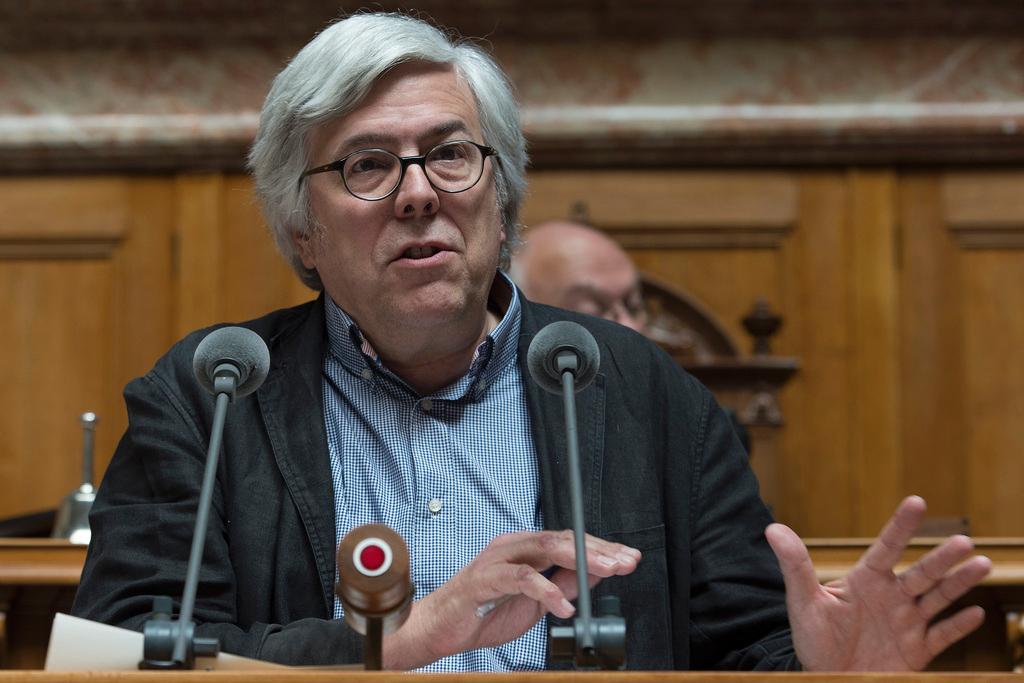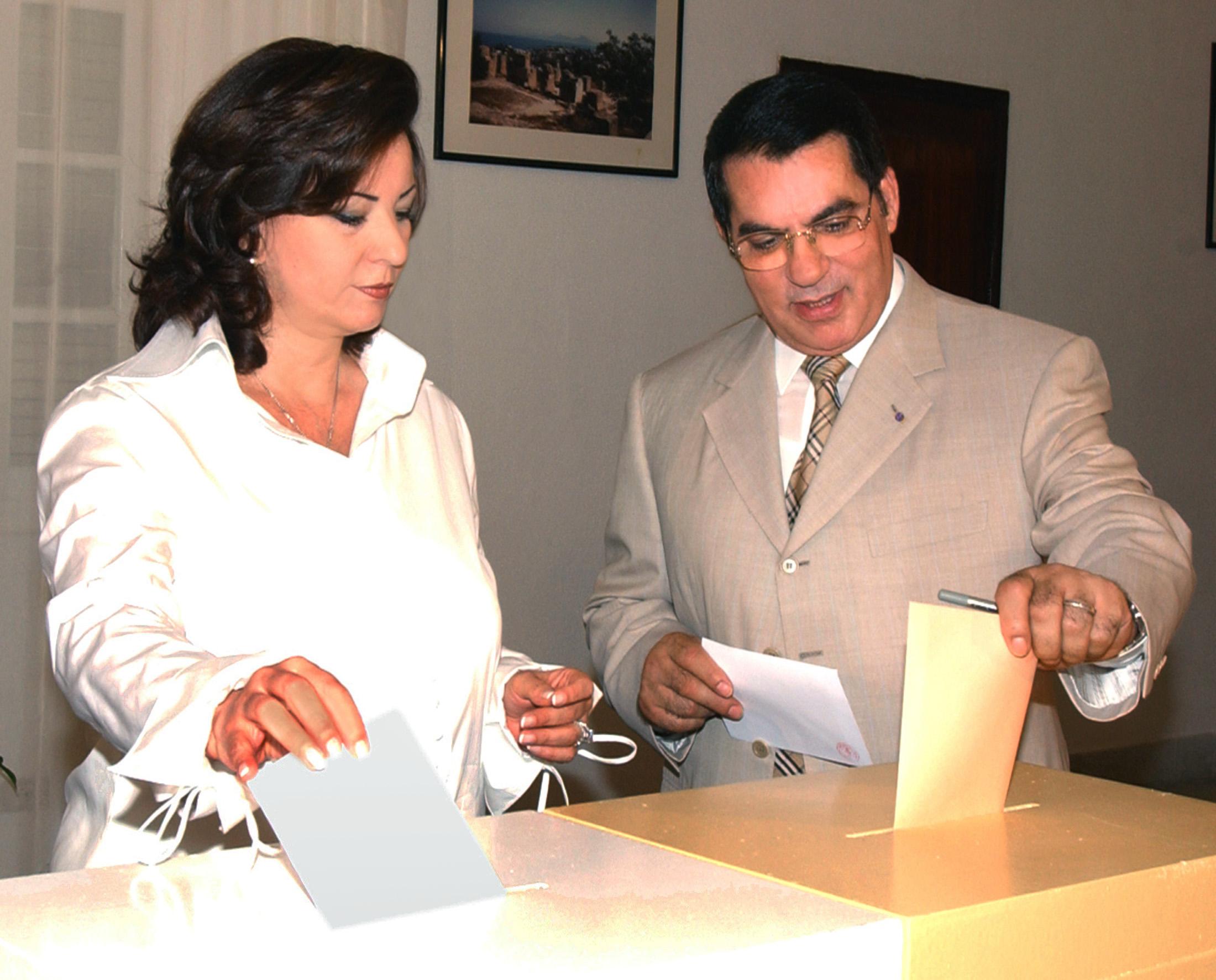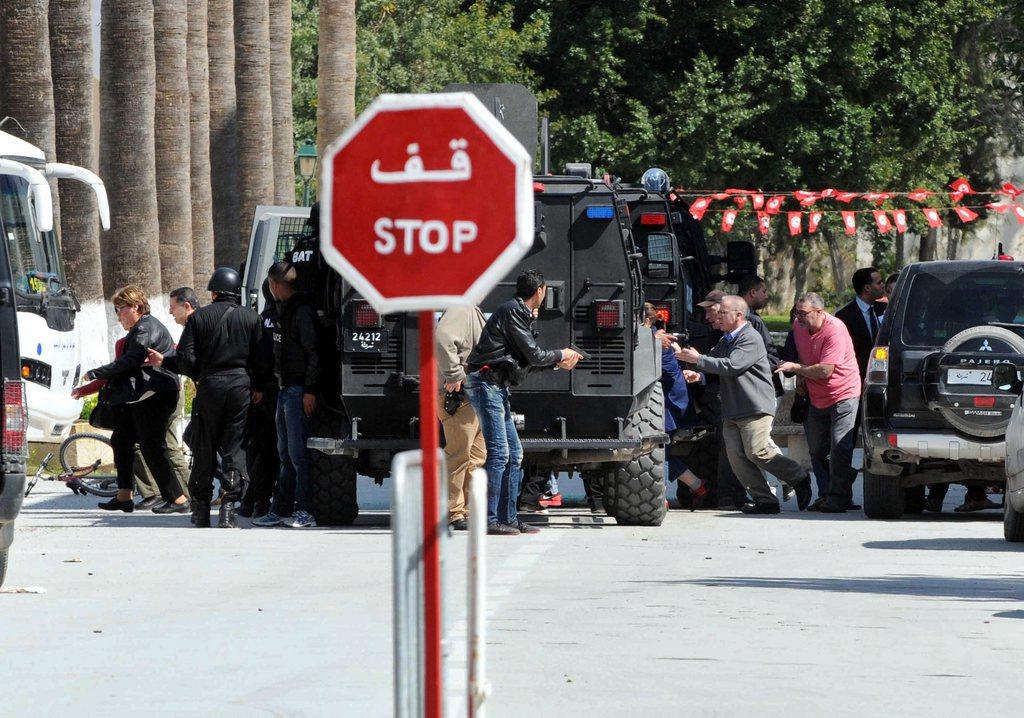‘Tunisian exception’ teaches democratic lessons

Tunisia’s relatively successful transition to life after the Arab Spring can best be explained by the country’s history and past experience in consensus-based decision making and “participatory” democracy, a legal expert tells swissinfo.ch.
Yadh Ben Achour, who was central in preparing the country’s political reforms, says that, despite security threats, Tunisia is progressing steadily along the path to democracy. A new constitution has been adopted and a new elected parliament and president are in place.
swissinfo.ch spoke to Ben Achour, president of the “High Council for the Realisation of the Goals of the Revolution, Political Reforms and Democratic Transition”, during his recent visit to Geneva.
swissinfo.ch: In 2011, you led this body in charge of political reform. What were the main lessons you learnt?
Yadh Ben Achour: We were in a revolutionary period, and in such periods the law cannot fully govern reality; but neither can it be ignored, even in revolutionary times.
In light of this, the High Council served as a kind of “parliament”. It comprised political parties of different ideologies that had made their mark in resisting the Ben Ali dictatorship. They had all opposed the regime and they joined forces sometime after the October 2005 hunger strike [in which opponents of all political colours took part] to form a common platform, which later worked together to finalise the new constitution. Although it didn’t have electoral legitimacy, the High Council was in fact built on consensus.
The main lesson I learnt was that the existence of this pre-revolutionary consensus helped us greatly. Thanks to this experience in participatory democracy, we were later able to get through the transition period successfully and establish a new constitution, which is after all a democratic one, despite the presence of an Islamic party in power.

More
Tunisian elders nurture decentralisation impetus
swissinfo.ch: What is Tunisia’s secret, in a turbulent Arab world with little or no democracy?
Y.B.A: The secret behind what’s being called the “Tunisian exception” stems from a number of elements. First, there was our experience under Bourguiba [the first president of the Republic of Tunisia from 1957 to 1987], who introduced far-reaching, modernising reforms – despite the strong-arm nature of his government – in particular in the areas of family law and women’s rights and in modernising mindsets. These reforms became very deeply engrained in the new Tunisian civic spirit, not just in legislation but also in people’s mentalities.
And we have lived up to this legacy! After the revolution, Tunisians defended – almost passionately – the advances achieved by women. And although deeply religious, they remained true to the Bourguibist ideal of the separation of the political and the religious. So as soon as the radical wing of the majority party [Ennahda] started to push for the Islamisation of the state and society, the majority of society reacted immediately.
Tunisia is also lucky in having had a long history of reform going back to the 19th century. Bourguiba himself was part of a much longer cycle, which began with the Fundamental Pact in 1857, followed by the first Tunisian constitution in 1861.
swissinfo.ch: In a recently published text, you say that the constitution of January 27, 2014, is ‘above all the result of a nascent citizenship’ in Tunisia. Do you believe that this trend will continue and expand?
Y.B.A.: This democratic experiment came about spontaneously because society was provoked by the attempts at Islamisation. This then led to a broad democratic debate.
This is why in the article you mentioned I said that it was the product of a nascent citizenship. Citizenship is the freedom of the legal person, of each individual, in asserting his or her presence in the face of the state. It’s very difficult – except in democratic regimes – to strike the necessary balance between individual and collective beliefs on the one hand and between the freedom of the individual and the authority of the state on the other.
swissinfo.ch: Over the years, several ideas have been put forward aimed at increasing citizens’ participation in decision-making processes. For example, the constitution contains sections on local power and the possibility for the president to call a referendum. Is this participatory approach likely to develop at local and regional levels?
Y.B.A: The phenomena you mentioned are legal techniques, whereas participatory democracy is not a legal problem but rather a question of mentalities and experiences. The law does not create the phenomenon, it organises it afterwards. The phenomenon is created when a majority of the people subscribes to it.
If people’s mentalities do not change, you can adopt the best constitutions and laws in the world but you still won’t succeed. Instead, you can make the problem worse. I’ll give you an example: local democracy and local power are excellent, but only if society is sufficiently united so as to resist divisions; thus there must be more unity than division, and more prosperity than poverty. In recent years, however, we have seen a resurgence of tribalism, which we thought had disappeared. If you go too far in opening the way to local government without taking the necessary precautions, you can encourage this kind of division, which can become even more dangerous.
swissinfo.ch: Tunis is hosting the 5th Global Forum on Modern Direct Democracy. How can this gathering feed into the dynamics currently underway in the country?
Y.B.A: I think this kind of event – with all the media hype surrounding it – can only benefit the country. Because the best way to change mentalities is through communication.
For example, the more you communicate on the issues of human rights, democracy, participation, elections and so on, the deeper they become rooted in people’s minds and the greater society’s awareness as a whole.
Yadh Ben Achour
Yadh Ben Achour is a Tunisian lawyer specialising in public law and Islamic political theory. He was Dean of the Faculty of Legal, Political, and Social Sciences of Tunis (1993-1999), a member of the Institute of International Law, and a member of the committee of experts charged with preparing a report on human development in the Arab world, directed by the United Nations Development Programme (2007).
On January 15, 2011, he was chosen to chair the “Higher Political Reform Commission”. After two months, the Commission became the “Higher Authority for Realisation of the Goals of the Revolution, Political Reform and Democratic Transition”, which did most of the political and legal work resulting in the election of a new constitution in October 2011.
He has published a dozen books and dozens of academic articles.
Translated by Julia Basaam

In compliance with the JTI standards
More: SWI swissinfo.ch certified by the Journalism Trust Initiative











You can find an overview of ongoing debates with our journalists here . Please join us!
If you want to start a conversation about a topic raised in this article or want to report factual errors, email us at english@swissinfo.ch.